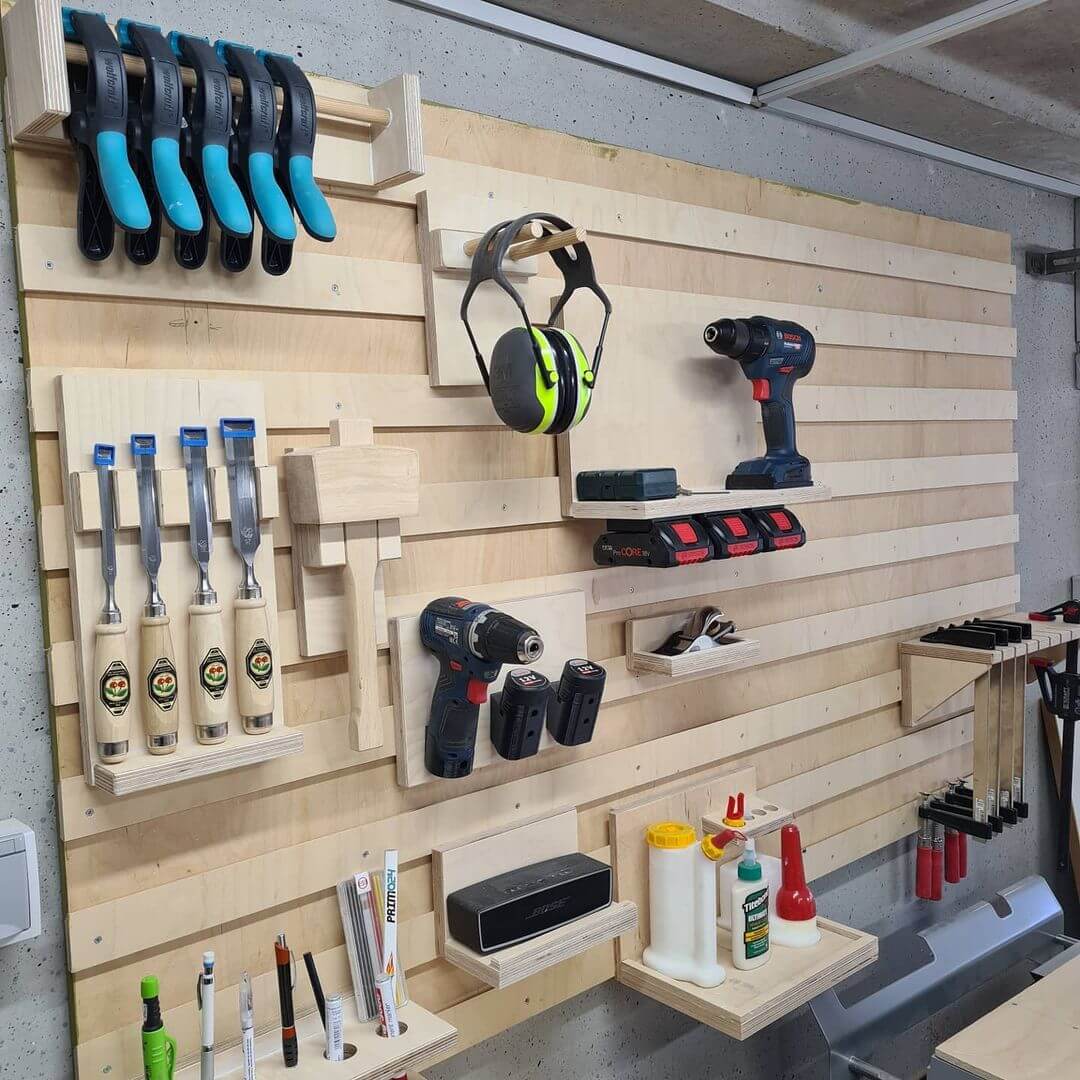How to Start a Woodworking Business From Home
Something you might be dreaming of doing is starting your own woodworking business and make a good six-figure income from home.
Yes, being able to run and own your own business is a dream that oh so many people have out there. Now, if you are lucky enough to be talented with something like woodworking, if you do it right, you stand to make a heck of a lot of cash.
However, of course, when it comes to starting your own woodworking business, there is a bit more to go into it than a love of woodworking.
Sure, woodworking is fun, but business is business, and if you want to be successful, you have to do it the right way.
For anybody interested in making some serious money and maybe even making a full-time career out of it, this guide on how to start a woodworking business is for you.
Why Start a Woodworking Business? And What Services to Offer?
There are many reasons why you should start a woodworking business. First and foremost, though, is the love of the craft – in fact, for some, it is a form of art.
Someone once said if you love what you do, is it really a job?
So, if you are passionate about this skill, then why not turn it into a profit-making proposition?
Not only will you be spending your time doing something you love instead of going to a job you hate or simply put up with, but you will also be getting some notoriety for all your hard work.
Tired of the hectic commute every morning to the office? Then woodworking is a great business for you to get into. With this business, you will work from home out of your very own shop.
You won’t have to get all dressed up every day and brave the crazy drivers on the freeway.
This will not only save you time but money. Plus, you get to write your own schedule, freeing you up to enrich other areas of your life.
You will be able to move stuff around to allow more time for your family, travel, and whatever else you feel you miss out on working that 9-5 job.
This niche can also be a super low-cost business to run, especially if you already own most of the tools. You won’t need to rent space, there is no staff needed (until you have built the business), and you don’t need to purchase tons of inventory.
You may need to pay for a web designer (though there are many great do-it-yourself platforms out there) and maybe someone to help you with a professional-looking business card but other than that, there is relatively no cast of entry for this business model.
Is Woodworking a Good Business Idea?
The other great thing about building a profitable woodworking business is that there are many opportunities out there.
The field is so versatile that you can either niche down and focus on one particular service or offer a wide variety of services and open up your business’s earning capability.
This also means that unlike that boring 9 to 5 job where you felt like a robot, there will always be a new project, and it won’t always be the same thing.
With that being said, it might be suggested to pick a few services and stick to them at first. By niching down, you will allow your business to build a reputation for delivering quality, and then once that reputation is built, you can expand your services.
Below we have listed a few options that you might want to try:
Services That You Could Provide…

How to Start A Woodworking Business – Crucial Tips
Here we have some crucial steps and tips that you need to be aware of if you want to make a successful woodworking business from the ground up.
Let’s get to it and talk about each tip in some greater detail.
1. Having the Proper Skills
First and foremost, although it might feel odd to hear if you want to get into the woodworking business, you need to know how to work with wood. We really cannot begin to explain how often we have seen people attempt to start a woodworking business without knowing the first thing about it.
If your birdhouses look more like bird coffins, it might be wise to take some classes first. It’s all about practicing, having the right tools, the right knowledge, and being confident in your skills.
Simply put, first, be sure that you know what you are doing, at least when it comes to woodworking, and all of the necessary terms and skills required to execute a precision project with perfection.
2. Finding the Right Space
The next thing you need to make sure of is that you have a good woodworking space. Now, if you are just starting out, and you have a big space available to you, such as a very large room in your home or a big garage, then sure, that’s a great place to get started.
However, if you happen to live in an apartment, well, that’s obviously not going to work so well. For woodworking, you are going to need a fairly large space for all of the lumber, tools, and machines, a well-ventilated and well-lit workspace, somewhere that you won’t disturb anybody when running big machinery.
Having a top-notch space to work in is very important indeed, and really separates the pretenders vs the professionals.
Just like every good businessman needs a good office, a good woodworker needs a highly functional workshop, with a practical workbench as the centerpiece of your shop.
Also, keep in mind that you will have to store the projects you complete in your workshop until they sell. This can seriously limit the space you have left to continue working.
You may need to build another workshop or find a larger space so you can hold more inventory while continuing to work. If not, production may have to grind to a halt until some of the pieces sell.
The noise level is also an important consideration, depending on where your workshop is located. If you work full-time making furniture pieces from home, then you need to be mindful of the noise pollution and your neighbors.
As you scale your business, consider soundproofing the workshop if you don’t intend on moving the space.
3. Getting the Right Tools
If you want to start your own woodworking business, you’ll need the right tools for the trade too.
Sure, you can start small with some basic machinery, but you will need them, nonetheless. Joiners, planers, various saws, sanding tools, handheld tools, paints, lacquers, and other fun stuff are definite requirements of this line of work.
Simply put, you cannot build a huge cabinet by hand. Well, maybe you could, but it would take you a lifetime.
A recommendation here, if you are super serious about starting your own woodworking business, is to get a nice spread of machines and tools, more than enough so you can make a wide variety of finished pieces, whether small toys or large cabinets.
Moreover, don’t cheap out. Cheap woodworking machines just are not worth it, as they always break down and they wear out fast. I
t’s always best to spend a bit extra on high-quality machinery that won’t need repairs every couple of months. In the long run, that will end up costing you big time.
4. Deciding What to Build & Sell
Now you need to decide what you actually want to build and sell for a profit. Remember that it’s better to do the small stuff right than to attempt huge and elaborate projects without the necessary skills and tools.
So, for one, what you decide to build is going to depend on your skills. If you have made a million birdhouses but have never made a chair, well then, it’s probably best to start by selling birdhouses, then slowly work your way up.
The same can be said for the tools you have. If you only have a small shop with a limited number of tools, you’ll probably have trouble completing a full-size dining table.
The point here is that you need to play to your strengths and advantages. There’s nothing wrong with starting your woodworking business by selling a few simple and small items, as long as they are made right.
When selling, you also have to consider the postage, packaging, and delivery. Some woodworking businesses, when first starting off, tend to advertise their pieces more locally. This long-distance avoidance can help save money as you expand your woodworking business.
Find easy-to-manage delivery options, a decent courier, and the right packaging solutions to protect your items during shipping.
For this, decide what you sell based on what will be easiest and most practical to ship long distances or sell locally. The shipping and packaging costs can eat into your profit margins if you aren’t careful about which pieces you choose to make and sell.
5. Finding the Right Target Audience
Alright, so another part of deciding what you want to build has to do with your target audience. Who do you want to sell this stuff to?
If you are going for pet owners, then wooden dog houses, cat trees, and pet beds may be a way to start. If it’s the gardening community you are going for, things like planters, flower boxes, and garden statues might be wise.
If you target the interior design community, things like coat racks, picture frames, chairs, tables, and other such things might be wise. You need to find out to who you want to sell your stuff.
Finding the right products for your particular niche is the key to success for many woodworking businesses. You also need to be more competitive in the market while bringing something different to your target audience.
Make pieces they will love that will help them stand out. Many people are on the hunt for the perfect statement piece for each room of the home. Capitalize on this and market to that audience.
6. Finding the Balance Between Quality & Affordability
Be sure that you don’t end up spending a ton of cash on lumber. Sure, high-quality lumber is great, as is taking your time to perfect each piece. However, do remember that there is a profit margin and a bottom line to think of.
Sure, quality is always better than quantity, but you cannot spend a full week on a single piece and then expect to make a living doing so. You need to find a good mix of quality and affordable work to allow for a decent profit.
Sometimes it can be helpful to find scrap wood, wood pallets, and other reclaimed lumber to use for your projects, rather than always purchasing new lumber for each build.
If you have the right woodworking skill under your belt, you can turn this secondhand wood into dream custom furniture for the right customer. This kind of wood is great for rustic pieces as well and can go a long way in improving your profit margins.
7. Marketing & Your Sphere of Influence
A big part of starting any business is marketing. If nobody knows you exist, nobody will come to buy your wood projects, no matter how intricate and high quality it is. Therefore, you need to find a way to get the word out there. Nowadays, you are lucky because you can do a lot of marketing on social media for free.
Open up some social media accounts, maybe even a blog website, and get to it. For anybody looking to start any kind of business, online and social media marketing is fantastic.
However, you can also go for the word-of-mouth way, just keep letting everybody around you know what you are doing, and hopefully, the word spreads so you can have a more successful woodworking business.
Whatever the case, you need to find a way to let people know who you are and what you are doing. You need to be able to reach your potential customer, show off your wood projects and carpentry skills in the woodworking industry, and make a profit.
When you lack a sufficient marketing plan, you can’t scale your business. Utilize traditional and modern marketing methods with both online and offline marketing solutions.
Online marketing is competitive these days, but as you grow your business, you can add more funds to your marketing efforts and even pay for paid advertising on your selected platforms.
Photos are going to be key when marketing your woodworking business. Showcase your products and grab your audience’s attention.
8. Scaling & Hiring Employees
Making sure you are set up for scaling once you have gained popularity is vital even in creating your new woodworking business. This means putting systems in place to grow with your business as you convert and generate more and more clients.
One of these important things to think about is when you will need to hire and build out your employee pool.
Eventually, with the right marketing and quality work, you will build a reputation that will have you in high demand. This means you will need to add on woodworkers or even office staff.
One of the best ways to prepare yourself for this eventuality is by building a network and being involved in your area’s woodworking community.
Attend start-up meetups and other events in your niche. When the need arises, all you will have to do is reach out to people in your network.
9. Keep Learning
Even with a good deal of knowledge, one way to keep your business flourishing and growing is to keep educating yourself.
This means keeping up with new techniques, new marketing strategies, new business trends, and, of course, new equipment and emerging trends. This is a form of scaling… scaling your skills.
You should also, once you have hired people to inspire your staff to do the same. This will keep the momentum going and never allow your woodworking business to fall into a rut.
Plus, it is a great way to elicit new ideas from your staff, which will help retain your talent and others in your woodworking world.
Other Key Considerations to Keep in Mind on How to Start a Woodworking Business
In addition to all the helpful information we have included above, there are a few other aspects to keep in mind when creating a successful woodworking business.
What Are the Costs Involved in Opening a Woodworking Business?
The costs involved in opening your own woodworking business can be significant but also manageable.
You will need money for lumber, the tools you need, and other equipment and materials to get started. If you are trying to turn your woodworking hobby into a business, for example, you can probably realistically do so with under $6500 to spend.
What Are Some Skills and Experiences That Will Help You Build a Successful Woodworking Business?
A good woodworker needs to have excellent hand-eye coordination so they can make precise cuts. It also helps to have some kind of math aptitude and computer skills, especially if you will be working in the manufacturing woodworking industry.
Mechanical skills are also needed as a woodworker needs to adjust and calibrate the machinery and equipment they use. Finally, physical stamina and strength are two more useful skills for building a successful woodworking business.
What Are the Ongoing Expenses for a Woodworking Business?
One of the primary ongoing expenses you have for a woodworking business is going to be the materials. Material costs should be covered by the sale of your finished wood projects.
Your overhead will also include ongoing expenses like rent, utilities, and finishing materials.
How Do You Come up With Business Names for Your Woodworking Business?
When coming up with business names for your woodworking business, make sure it is memorable and easy to pronounce.
This makes it easier for your customers. You can use acronyms, create mash-ups, pull inspiration from literature, or use your own name. Just make sure the business names you come up with are unique.
What Tools Do I Have to Invest in for My Wood Shop?
There are several essential woodworking tools you need to have in your wood shop. These tools include a table saw, router, chisels, orbital sander, bandsaw, dust collector, jointer, and planer.
The other tools you have will depend on the type of wood pieces you create and each job’s requirements.

In Conclusion
There you have it folks, the most important steps and tips you need to follow in order to start your own successful woodworking business.
Remember, the business can be fun, but it’s primarily meant to be a business.
The good thing is that once you learn the fundamental business principles and have a deep understanding of your industry, you can focus on serving the needs of your customers.
Being a hobby woodworker is great, but now that you want to scale your business to put some real cash in your pocket, you have to become business-oriented as well.



